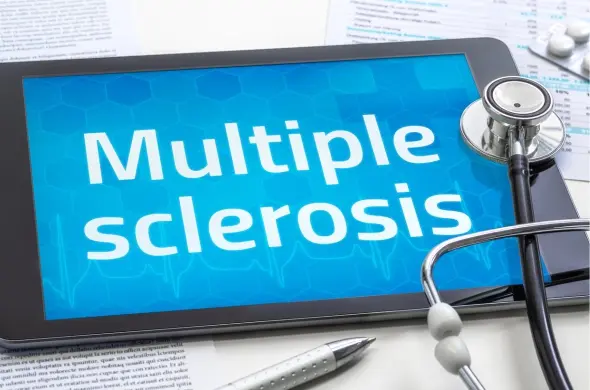Living with multiple sclerosis (MS) can feel like navigating uncharted territory. This complex neurological condition affects everyone differently, yet it shares a common thread: it challenges the way the nervous system communicates with the rest of the body. But here’s what everyone should know, Multiple Sclerosis Explained isn’t just a diagnosis; it’s the beginning of a journey toward understanding, adaptation, and empowerment.
In this post, we’ll simplify what MS is, what it feels like, and how it can be managed. Whether you’re newly diagnosed, supporting a loved one, or simply curious, we’ll walk through the essentials together, clearly, compassionately, and without overwhelm.
What Is Multiple Sclerosis, Really?
At its core, Multiple Sclerosis Explained means breaking down a simple but critical idea: MS is an autoimmune condition. That means the body’s immune system, which normally fights off infections, mistakenly attacks the protective coating around nerve fibers (called myelin) in the brain and spinal cord.
Think of myelin like the insulation around an electrical wire. When it’s damaged, the signals between your brain and body can slow down, get distorted, or even stop altogether. This is what leads to the wide-ranging symptoms of MS.
While the exact cause remains unknown, most researchers believe it’s a mix of genetic predisposition and environmental triggers—like viral infections or low vitamin D levels.
Recognizing the Symptoms: No Two Journeys Are Alike
MS is often called the “snowflake disease” because it affects each person uniquely. Symptoms can be unpredictable, they may come and go, or evolve over time. Common signs include:
- Overwhelming fatigue that doesn’t improve with rest
- Numbness or tingling in the face, arms, or legs
- Muscle weakness, stiffness, or spasms
- Balance and coordination issues
- Blurred vision, double vision, or eye pain
- Brain fog, trouble with memory, focus, or finding words
It’s important not to self-diagnose, but if you or someone you know is experiencing these symptoms, speaking with a neurologist is a helpful first step.
How MS Is Managed: A Proactive Approach
While there’s no cure for MS yet, treatments have advanced dramatically. Today, the goal is to slow disease progression, manage symptoms, and help people live full, active lives. Management often includes:
- Disease-Modifying Therapies (DMTs)
These medications reduce inflammation and can decrease the frequency and severity of relapses. Many new options are available, from injections to infusions, making treatment more personalized than ever. - Symptom-Specific Treatments
From medications for nerve pain and muscle spasticity to bladder management tools, tailored treatments can greatly improve daily quality of life. - Rehabilitation & Therapy
Physical, occupational, and speech therapy aren’t just “extras”, they’re essential. They help people maintain mobility, independence, and function.
Lifestyle and Self-Care: Your Daily Toolkit
How you live day to day can powerfully influence how you feel with MS. Small, consistent habits often make the biggest difference:
- Move in ways that work for you: Gentle exercise like swimming, yoga, or walking can boost mood, energy, and strength, but always listen to your body and work with your care team.
- Nourish your body: While no single “MS diet” exists, eating anti-inflammatory foods (think leafy greens, berries, nuts, and fish) can support overall wellness.
- Rest intentionally: Fatigue is one of the most common symptoms. Prioritize sleep, and give yourself permission to pause and recharge.
- Reduce stress: Mindfulness, meditation, and hobbies you love aren’t luxuries, they’re tools that help calm the nervous system.
You Don’t Have to Do This Alone
Perhaps the most important part of Multiple Sclerosis Explained is this: support changes everything. Connecting with others, whether through friends, family, support groups, or online communities, reduces isolation and provides practical wisdom and hope.
Regular check-ins with your healthcare team are also key. Together, you can monitor changes, adjust treatments, and celebrate progress, no matter how small.
In Summary: Living Fully with MS
A multiple sclerosis diagnosis can feel overwhelming, but it doesn’t define you. With today’s treatments, a focus on daily self-care, and a strong support network, it’s entirely possible to thrive, not just survive.
You are the driver of your journey. Learn what works for you, advocate for your needs, and never underestimate the power of small, consistent steps.
A Note of Kindness:
If you’re living with MS, remember, you are so much more than your diagnosis. On hard days, be gentle with yourself. On better days, celebrate what your body and mind can do. You’ve got this.
Disclaimer: This post is for educational purposes only and is not a substitute for professional medical advice. Always consult with a qualified healthcare provider for diagnosis, treatment, and personalized guidance.
